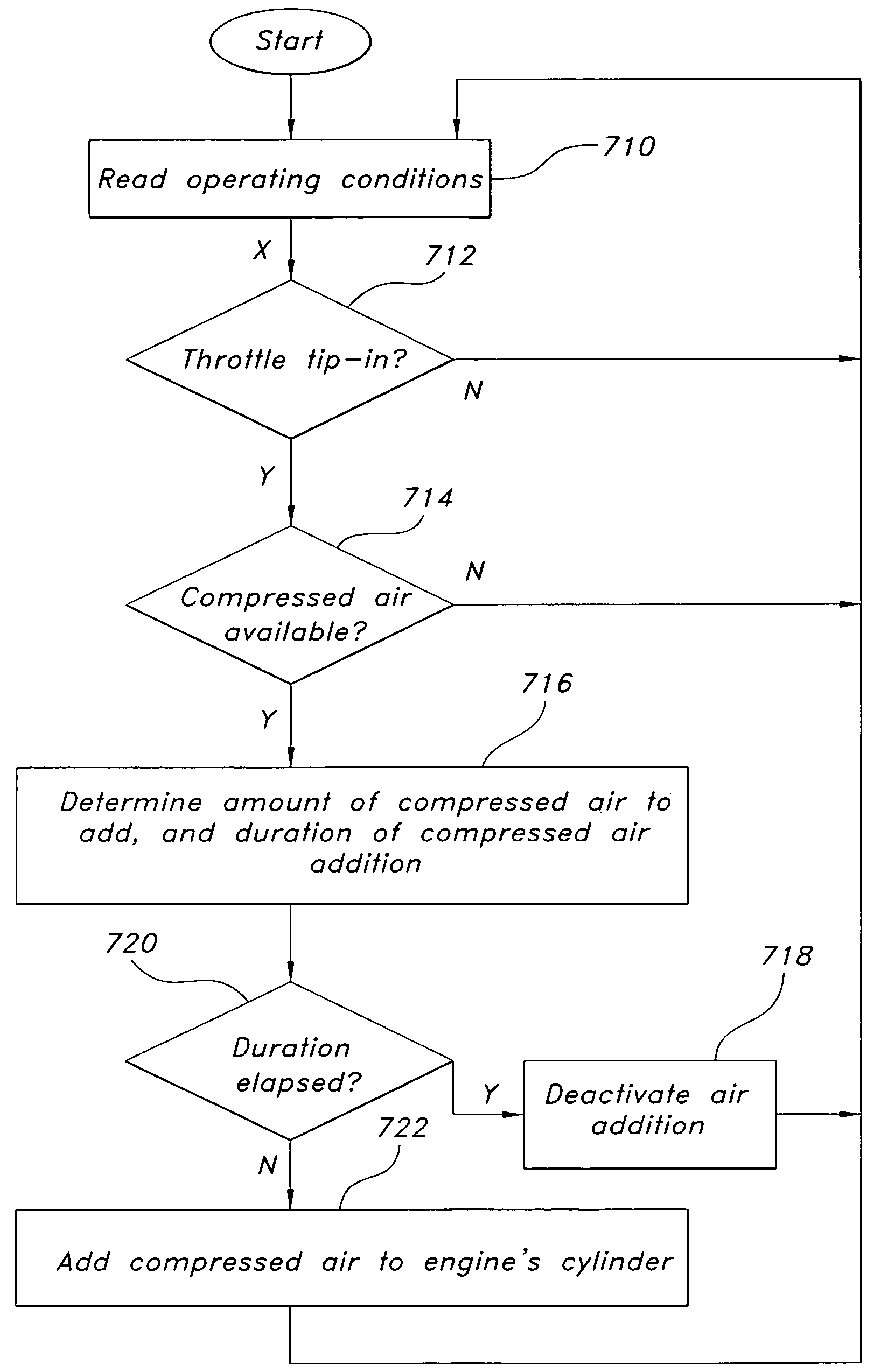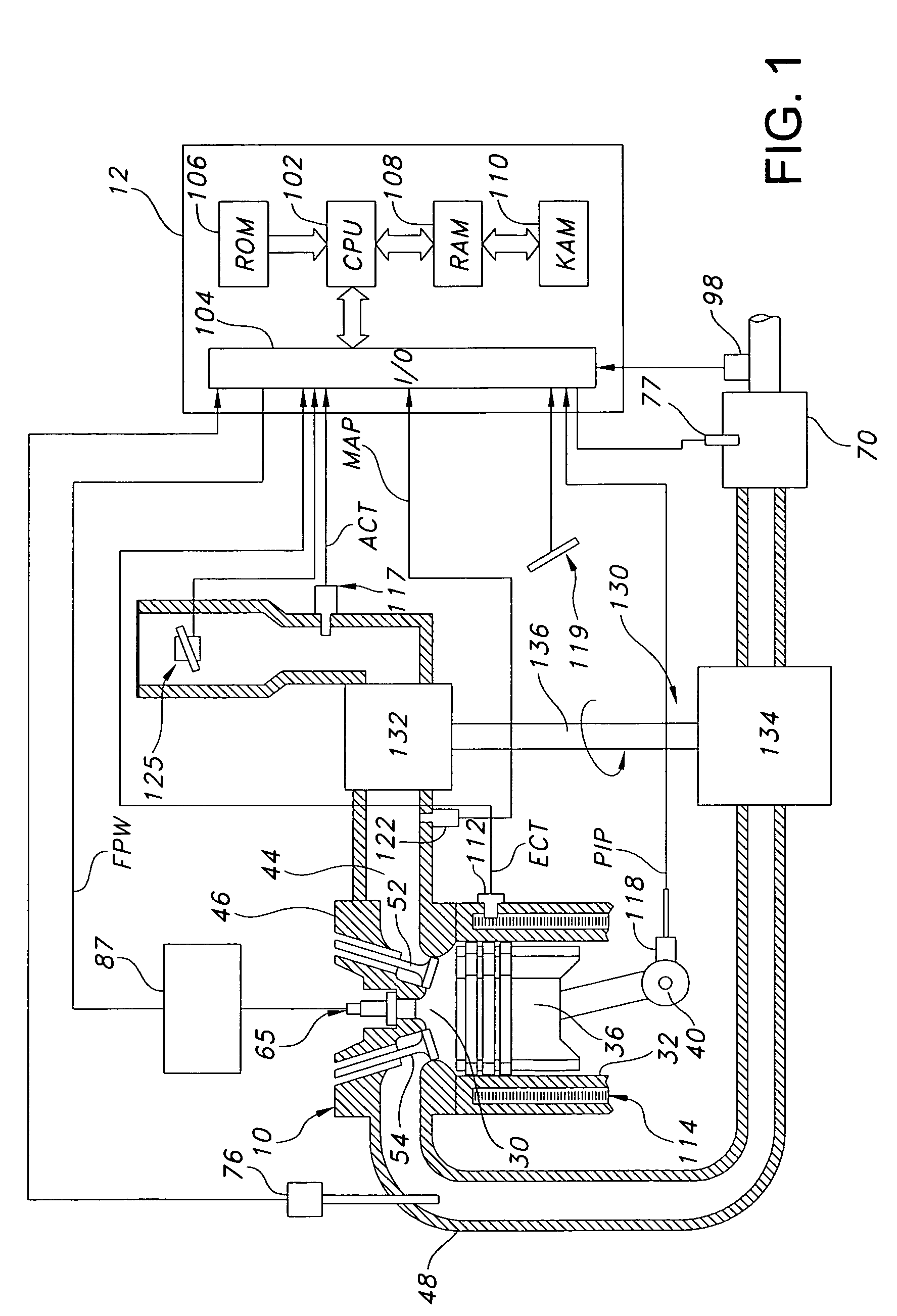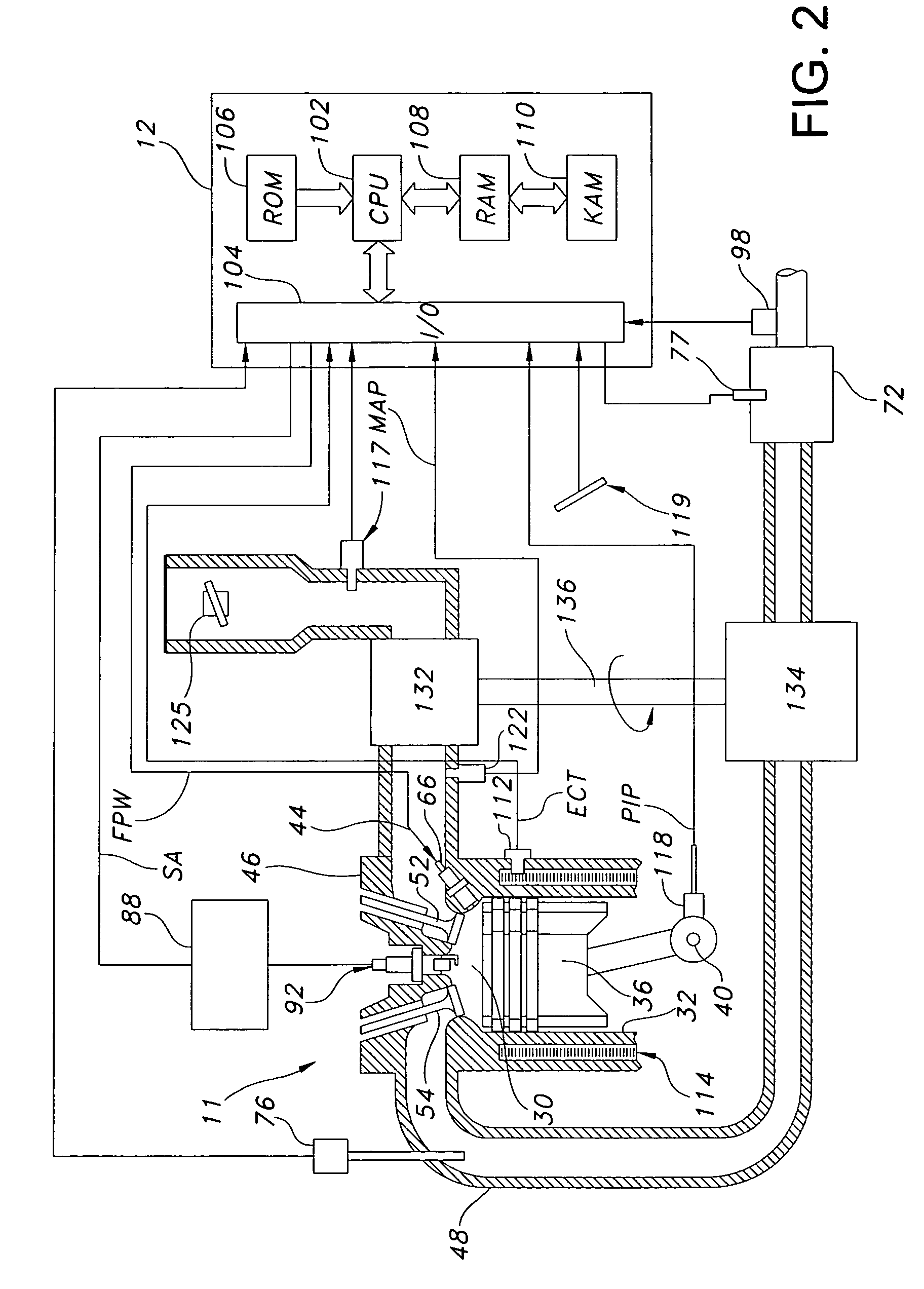Turbo-lag compensation system for an engine
a technology of compensation system and engine, which is applied in the direction of machines/engines, mechanical equipment, electric control, etc., can solve the problems of requiring significant packaging space in the vehicle, reducing and reducing the transient performance of the turbocharged engine, so as to achieve less transient performance and increase the power density of the engin
- Summary
- Abstract
- Description
- Claims
- Application Information
AI Technical Summary
Benefits of technology
Problems solved by technology
Method used
Image
Examples
Embodiment Construction
[0015]As noted above, the present application describes an approach that provides boost compensation to reduce effects of compressor delays, such as the phenomena known as turbo-lag, as well as improve various other engine operations, such as engine cold starting. In one particular example, a separate source of compressed air is available to be rapidly supplied to the engine (e.g., via the intake manifold, intake port, or cylinder head) during selected conditions, such as in response to an accelerator pedal tip-in, thus reducing turbo-lag. The additional air from the air amplifier serves to provide a rapid increase in cylinder charge, even when the turbocharger has not yet attained sufficient speed to generate the desired pressure boost. Furthermore, the injection of higher pressure air into the engine cylinders results in an almost immediate increase in exhaust flow, which enhances function of the turbocharger, and thus can further reduce the turbo-lag period. In other words, it is...
PUM
 Login to View More
Login to View More Abstract
Description
Claims
Application Information
 Login to View More
Login to View More - R&D
- Intellectual Property
- Life Sciences
- Materials
- Tech Scout
- Unparalleled Data Quality
- Higher Quality Content
- 60% Fewer Hallucinations
Browse by: Latest US Patents, China's latest patents, Technical Efficacy Thesaurus, Application Domain, Technology Topic, Popular Technical Reports.
© 2025 PatSnap. All rights reserved.Legal|Privacy policy|Modern Slavery Act Transparency Statement|Sitemap|About US| Contact US: help@patsnap.com



